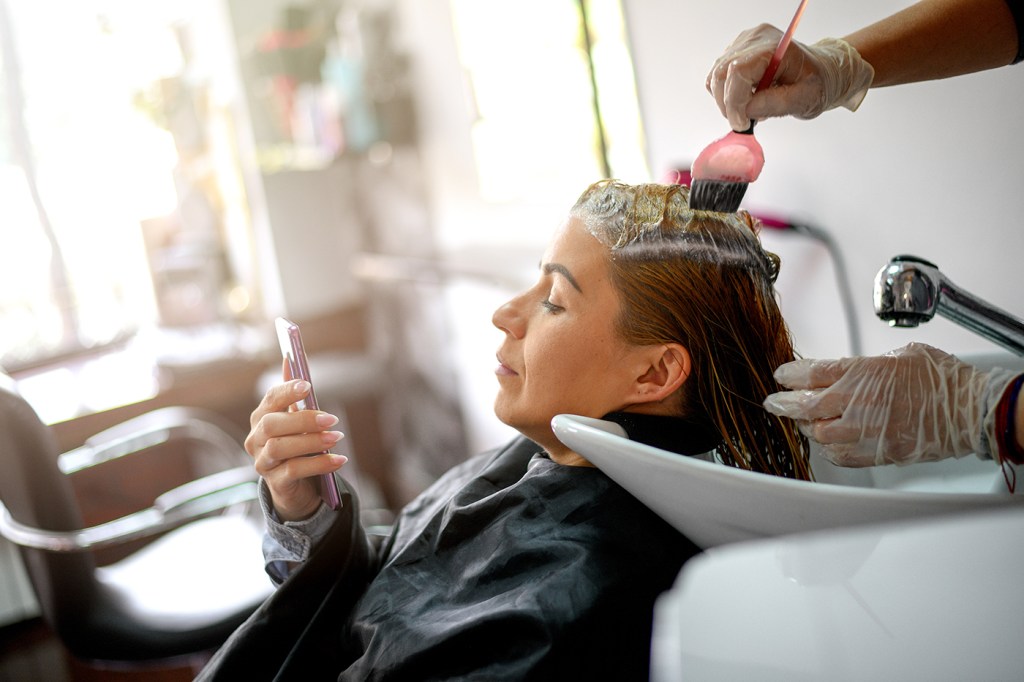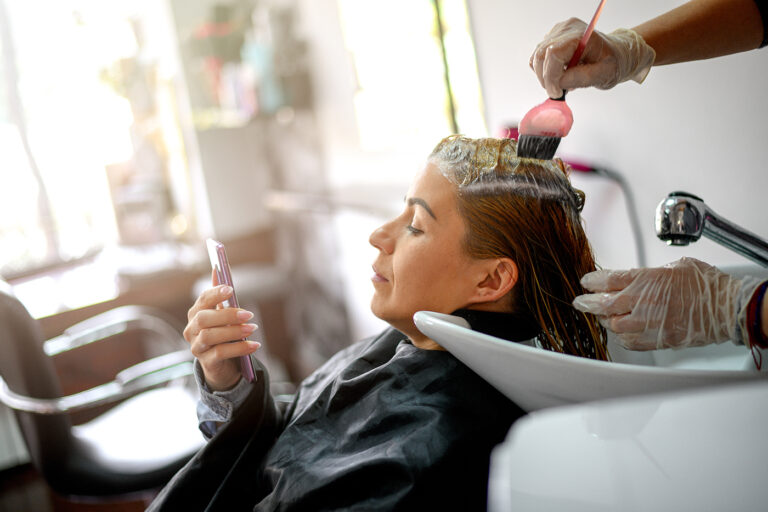
The next big trend in professional haircare has nothing to do with coloring or cutting at all: it’s the conversation-free, silent appointment option.
From New York and Massachusetts to Helsinki, “silent” hair treatments are growing in popularity as more salons offer the no-chat service known in the hair industry.
But does this trend indicate a healthy recognition of the need for quiet time in a busy world, or does it mean we continue to distance ourselves from relationships at a time when loneliness is rampant? Does it indicate that?
It depends on the individual and the situation, says Kristen Lee, a Northeastern education professor and behavioral science expert.

“It’s a way to be very active in communication and express your preferences and needs,” she says.
The ability to reserve quiet time, or a “silent chair,” as at least one Boston salon is offering, is a hassle-free way for clients to communicate their desire to rejuvenate and relax in a quiet environment, Lee said.
This option “has the potential to speak to people who feel overstimulated in their lives and struggle to find quiet places,” she says.
Choosing silent service in advance also eliminates customers’ concerns about hurting the stylist’s feelings by refusing to talk, Lee said.
“Having that option up front can give someone the space they need to really recalibrate or recharge in that moment.”
“Being proactive is a really good way to communicate so you can set expectations and hopefully follow through.”
Increased social anxiety
In a recent news report, a New York City hairdresser said social anxiety has increased since the COVID-19 pandemic, with more people feeling anxious about making small talk.
“We know that social anxiety disorder is the fastest growing anxiety spectrum disorder,” says the author of “It’s Worth the Risk: Building Resilience and Connecting More,” published in 2022. Lee, the author of several books, including “How to Microdose Courage to Have and Offer Yourself to the World.”
She says setting communication boundaries can be helpful for people who feel a lot of anxiety or anxiety about leaving the house and getting into social situations where they feel out of control. .
For women and people of color, choosing silence can be a way to avoid the expectation that they will do the emotional labor of listening to strangers’ concerns or answering questions about their lives and cultural perspectives, Lee says.
Her background in behavioral science has trained her to remain calm in the face of “traumatic revelations” from strangers, but she says not everyone is mentally equipped to protect themselves.
But Lee also has his limits.
“I travel a lot for speaking engagements. I recently got in a taxi and for the first time said, “It’s really cool here, isn’t it?” I like the temperature. And I want to ride quietly. ”
“I was kind of tired and I didn’t want to be rude, so I just set those expectations. It seemed like everyone had a peaceful experience,” Lee said.
Does small talk count as exposure therapy?
From silent salons and silent rideshare options to automated pickup at restaurants and grocery stores, people are relying more than ever on virtual rather than in-person contact and communication.
“Our communication preferences and literacy are changing very dramatically,” Lee said.
“Loneliness is listed as a major health issue today. People feel disconnected and isolated,” she says.
People want more meaningful connections, not necessarily superficial conversations about the weather, Lee said.
Still, small talk can go a long way in helping people with social anxiety come out of their shells and explore interests, opportunities, and friendships.
It’s called exposure therapy, and it helps people by making uncomfortable conditions comfortable, Lee says.
A counselor might encourage a client who tried a quiet salon appointment to try an open-ended appointment next time and ask the stylist about their hobbies or favorite books. Or they could ask how they feel about a quiet appointment.


